How to make the world better and more beautiful by making economics better and beautiful

World in Chaos and Despair: The Healing Power of Poetry
Economics Needs a New Story and New Storytellers
I look forward to a day when students of economics and their teachers are required to study creativity and be inspired by the work of artists, poets, mystics, musicians, sculptors, philosophers, and peacemakers, and thus, bring meaning and purpose into the study of economics. I dream of a time when economic textbooks, as well as addressing how we may manage the economy, would also speak of the need for beauty, intimacy, kindness, empathy, cooperation, enoughness, friendship, fairness, community and love, on who and what we are.
In all, I dream of a day when economics becomes the enabler and the economists as the empowerers of the good life and the good society.
‘We should look beyond economics and open our eyes to beauty.’- Fiona Reynolds, Former Master of Emmanuel College, Cambridge and Director-General of the National Trust.
An open letter to all my fellow academic colleagues: Make Education ‘A Thing of Beauty’
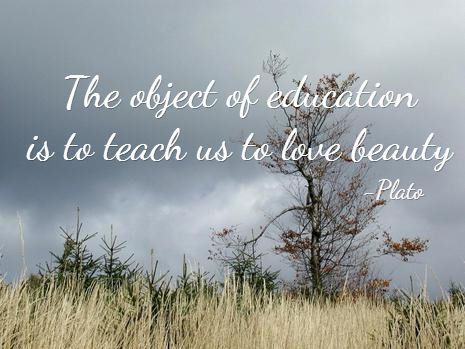
Photo credit:pinterest
When there is no beauty present, there is no vision, balance or hope
N.B. In all my academic life, spanning over four decades, teaching economics, I have been dismayed, frustrated and overwhelmed with pain to notice that our education model and teaching has not embraced beauty and the wisdom of our mother nature, our sacred earth, incorporating them into the teaching curriculum.
This, to my mind, has seriously deprived our students, our future leaders, or indeed, our current leaders, to get a wholesome, values-led education, and thus, has prevented them from the needed vision to implement policies to heal our world, and to better our lives.
I wonder if these days, many people talk about beauty anymore? We talk about economics, politics, money, and shopping. We talk about profit maximisation and cost minimisation, the highest returns to the shareholders, bonuses for the CEOs. We talk about deregulation, liberalisation, marketisation. We then talk about economic growth and more growth even though nobody knows what for!
But we don’t talk much, if any, about respect, honour, trust, poetry, or beauty, or arts, or philosophical questions. It seems nobody has the time for it! Money is all that matters. somewhere along the line, the idea of beauty has become blurred. And today we are left with ugliness everywhere. That's why John Muir, the 19th-century environmentalist urged us: ‘We have to fight for beauty... It's not blind opposition to progress but opposition to blind progress.’ and also reminded us that “Everybody needs beauty as well as bread.”
This is how I had tried to the best of my ability to explain in more details what I have noted above:
‘From 1980 onwards, for the next twenty years, I taught economics in universities, enthusiastically demonstrating how economic theories provided answers to problems of all sorts. I got quite carried away by the beauty, the sophisticated elegance, of complicated mathematical models and theories. But gradually I started to have an empty feeling.
‘I began to ask fundamental questions of myself. Why did I never talk to my students about beauty, compassion, dignity, comradeship, solidarity, happiness, spirituality – about the meaning of life? We never debated the biggest questions. Who are we? Where have we come from? Where are we going?
‘I told them to create wealth, but I did not tell them for what reason. I told them about scarcity and competition, but not about abundance and co-operation. I told them about free trade, but not about fair trade; about GNP – Gross National Product – but not about GNH – Gross National Happiness. I told them about profit maximisation and cost minimisation, about the highest returns to the shareholders, but not about social consciousness, accountability to the community, sustainability and respect for creation and the creator. I did not tell them that, without humanity and beauty, economics is a house of cards built on shifting sands.
‘These conflicts caused me much frustration and alienation, leading to heartache and despair. I needed to rediscover myself and real-life economics. After a proud decades of academic career, I became a student all over again. I would study theology, philosophy and ethics, disciplines nobody had taught me when I was a student of economics and I did not teach my own students when I became a teacher of economics.
‘It was at this difficult time that I came to understand that I needed to bring beauty, spirituality, compassion, ethics and morality back into economics itself, to make this dismal science once again relevant to and concerned with the common good.’...Read more HERE
What is Economics Education and What Makes Us Truly Human?

Photo credit:clubofrome.org
Modern Economics has undermined Civility, Trust, Community, Beauty, and Humanity
A jargon-free, non-mathematical, heart-to-heart dialogue with my fellow-academic colleagues on what makes us human, who we are, why we are and what is the purpose of this journey we call life?
First and foremost, this Blog is an invitation to my fellow academic economists to reclaim economics, as once again, a subject of beauty, wisdom, elegance, moral sentiments, empathy, whilst respecting all aspects of the web of life. We must become instruments of peace, hope, flourishing, thriving, and prosperity for all.
‘The hope that the pursuit of goodness and virtue can be postponed until we have attained universal prosperity and that by the single-minded pursuit of wealth, without bothering our heads about spiritual and moral questions, we could establish peace on earth, is an unrealistic, unscientific, and irrational hope…
‘To the extent that economic thinking is based on the market, it takes the sacredness out of life, because there can be nothing sacred in something that has a price. Not surprisingly, therefore, if economic thinking pervades the whole of society, even simple non-economic values like beauty, health, or cleanliness can survive only if they prove to be economic…’-E. F. Schumacher in Small is Beautiful (The man and the book that changed the course of my life)
‘In the imagined world of neoliberal economists, growing GDP and financial wealth is society’s defining purpose. They would have us believe we each best serve society by competing to maximize our personal income and consumption while ignoring the social and environmental consequences. They educate our young to disregard both reality and long-established ethical principles in their future roles as citizens, political leaders, corporate executives, and community activists. This deeply flawed message is constantly reinforced through popular media.’-DAVID KORTEN
Economic Growth: The Index of Misery
‘If I ruled the world, I would rewrite the economics textbooks. This may seem a small ambition, unworthy of my sovereign office. But it would actually be a big step toward a better civic life. Today, we often confuse market reasoning for moral reasoning. We fall into thinking that economic efficiency—getting goods to those with the greatest willingness and ability to pay for them—defines the common good. But this is a mistake… The economistic view of the world is corrosive of democratic life. It makes for an impoverished public discourse, and a managerial, technocratic politics…So here is how I would revise the textbooks: I would abandon the claim that economics is a free-standing, value-neutral science, and would reconnect it with its origins in moral and political philosophy. The classical political economists of the 18th and 19th centuries—from Adam Smith to Karl Marx to John Stuart Mill—rightly conceived economics as a subfield of moral and political philosophy. In the 20th century, economics departed from this tradition, defined itself as an autonomous discipline, and aspired to the rigour of the natural sciences…’- Michael Sandel, author of "What Money Can't Buy: The Moral Limits of Markets"
Rethinking Economics for a Better World: Economics as If Values Mattered
The folly of economism that has separated us from beauty
An open letter to all my fellow academic colleagues: Make Education ‘A Thing of Beauty’
World in Chaos and Despair: A Manifesto for Education to Build a Better World
What is the Secret to Living the Good Life?
Free marketeers, the low-level neoliberals, and the current mumbo-jumbo economics and economists, are often, and most justifiably, criticised and chastised for producing ugly, dystopian, consumer-driven outcomes, devoid of any beauty,humanity, spirituality, and meaning. Production is solely for the purpose of maximising making money and nothing else, which now as we all know has resulted in the creation of a ‘zombie’ world, a world without human qualities and values. To my mind, if we truly wish to advance the cause of progress and betterment, we need to break the deadlock and attempt to intertwine economics and beauty.
All in all, economics is a discipline that shapes decisions of the utmost consequence, and as such it matters to us all, our lives and our hopes. To bring economics and beauty together provides the compass that we urgently need. In doing so, it shows us how we can help save our planet, our world, our heart and soul, and in doing so, save ourselves. Carpe diem!
Beauty as Manifestation of the Divine: A Brief Introduction
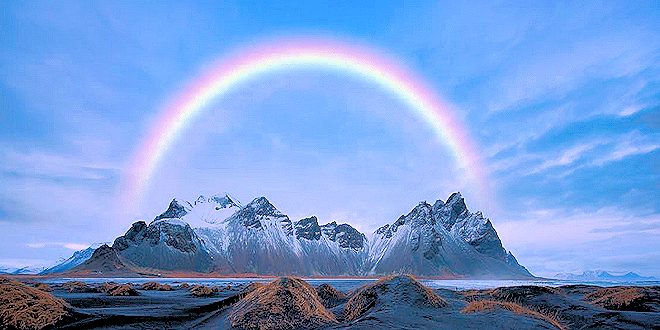
Photo: Pexels - Evgeny Tchebotarev
‘Through beauty we see truth and through truth beauty, and both reflect essential goodness or godliness. The poet, John Keats reminded us that:
“Beauty is truth, truth beauty, —that is all Ye know on earth, and all ye need to know.”- From ‘Ode to a Grecian Urn’ by John Keats
‘…the expression of the creative faculty is radiation and magnetism. These bring to its possessor the material for creation and a magnetic capacity which arranges in due form and beauty that which radiation has evoked. Creativity is a consequence of a particular state of mind and a specific state of being; it signifies a point in evolution wherein the disciple is definitely radioactive. He can no more help creating in some form or another than he can help living. After all …karma is ever the source of physical plane creation, happenings and events …”-Discipleship in the New Age II, Page 539
…’we must think wisely about beauty.
In Beauty will Infinity be manifested. In Beauty the teachings of the Seekers of the spirit are illumined. In Beauty we do not fear to manifest the truth of freedom. In Beauty do we kindle radiance in every drop of water. In Beauty do we transform matter into a rainbow.
There is no ugliness which will not be engulfed in the rays of the rainbow. There are no fetters which will not disintegrate in the freedom of Beauty. How shall we find the words to approach the concept of the universe? How shall we tell about the evolution of forms? How to uplift the consciousness to the study of fundamentals? How to stimulate humanity to scientific cognition of the worlds? Each realisation is born in Beauty. Know how to think radiantly, and nothing terrifying will touch you. Remember, We have no forbiddances.’
“The evening was lonely for me, and I was reading a book till my
heart became dry, and it seemed to me that beauty was a thing
fashioned by the traders in words. Tired I shut the book and
snuffed the candle. In a moment the room was flooded with
moonlight.
Spirit of Beauty, how could you, whose radiance overbrims the
sky, stand hidden behind a candle’s tiny flame? How could a few
vain words from a book rise like a mist, and veil her whose voice
has hushed the heart of earth into ineffable calm?”- Rabindranath Tagore
(The above four quotations are taken from 'Beauty is the Impact of the Divine')
"Today to talk of beauty in policy circles risks embarrassment: it is felt both to be too vague a word, lacking precision and focus and, paradoxically given its appeal by contrast with official jargon, elitist. Yet in losing the word ‘beauty’ we have lost something special from our ability to shape our present and our future.” Fiona Reynolds (2016)
“The modern Englishman is fed and clothed better than his ancestor, but his spiritual side, in all that connects him with the beauty of the world, is utterly starved as no people have ever been starved in the history of the world.” G.M. Trevelyan (1931)
“We all want beauty for the refreshment of our souls” Octavia Hill (1883)
“Human society and the beauty of nature are meant to be enjoyed together," Ebenezer Howard (1898)
‘Among the many various literary and artistic pursuits which invigorate men's minds, the strongest affection and utmost zeal should, I think, promote the studies concerned with the most beautiful objects, most deserving to be known.’- Nicolaus Copernicus (1473–1543) in De revolutionibus Orbium Caelestium (On the Revolutions of the Heavenly Spheres)
In short, ‘Beauty is the first thing we notice and love. It is the ambassador, or the sales representative, for truth and goodness. That’s why Dostoevsky said it would save the world.’- Peter Kreeft, professor of philosophy at Boston College.
William Wordsworth, the most persuasive of all environmentalists, and one of the foremost poets of the Romantic era, eloquently captures the profound essence of nature as manifestation of beauty in his timeless works. Throughout his poetry, Wordsworth celebrates the sublime beauty of the natural world, portraying it as a source of inspiration, solace, and spiritual renewal. His deep reverence for nature is evident in poems such as "I Wandered Lonely as a Cloud," where he explores the interconnectedness between beauty, humanity, ecology, and the environment, depicting nature as a source of joy and inspiration. The poem captures the transcendent power of the natural world to uplift the human soul and evoke feelings of transcendent beauty.
Plato taught that being moved by earthly beauty is effectively a portal to contemplation of the “absolute beauty” of the Divine. He explained this beautifully in the Symposium:
“The right way of approaching… the mysteries of love, [is] to begin with examples of beauty in this world, and [use] them as steps to ascend continually with that absolute beauty as one's aim, from one instance of physical beauty to two and from two to all, then from physical beauty to moral beauty, and from moral beauty to the beauty of knowledge, until… one arrives at the supreme knowledge whose sole object is that absolute beauty, and knows at last what absolute beauty is.”
The 20th century Swiss philosopher and theologian, Hans Urs von Balthasar, spent a lifetime considering just such an approach to God. In his Theological Aesthetics, he postulated that “Beauty,” was on par with Goodness and Truth.
“Beauty…. dances as an uncontained splendour around the double constellation of the true and the good and their inseparable relation to one another… Our situation today shows that beauty demands for itself at least as much courage and decision as do truth and goodness, and she will not allow herself to be separated and banned from her two sisters …We can be sure that whoever sneers at her name … can no longer pray and soon will no longer be able to love.”
This is How to make Economics Beautiful
‘We should look beyond economics and open our eyes to beauty.’
By Fiona Reynolds/ via The Guardian
‘We seem to have forgotten that the human spirit is not satisfied by material progress alone. It’s time for us to reconnect with nature.’
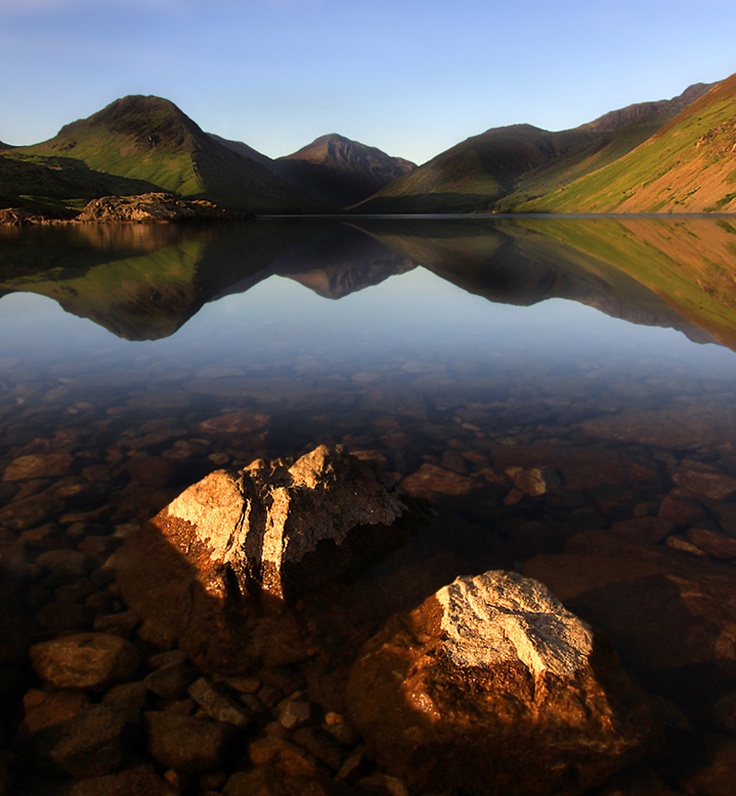
Photo credit via printerest.com
‘Beauty. It’s a word we all use to describe our delight in the world around us: a landscape we love; a butterfly’s wings translucent in the sunshine; or a wondrous piece of architecture. We all love beauty; we have only to watch the numbers glued to TV’s Countryfile and Springwatch, and the way we head for the beach and the countryside as soon as the sun shines, to see that it’s something that meets a real human need.
‘Yet you’d be hard pressed to find the word in any official document, or to hear any politician utter it today. In fact we seem almost embarrassed to talk about beauty, other than in private. Instead we have invented all kinds of pseudo, management-speak words to describe the things we need to look after: words like ecosystem services, natural capital and sustainable development. And when we’re making decisions about the future, all we seem to care about is whether we will deliver growth or generate an economic return.
‘But it wasn’t always like that. Beauty was a word and an idea that people in previous centuries used freely and confidently, including in legislation and public policy. And because people celebrated beauty it was something they sought to create, in town and country, and enacted laws to protect the things and places people loved.
‘Beauty is written deeply into our culture. Some of the earliest texts show a yearning for beauty, with Chaucer reminding us that it was the beauty of an April spring that “longen folk to goon on pilgrimages”. Mediaeval stonemasons constructed fabulous churches and cathedrals, carving flowers and animals into their stone. Throughout history, artists and architects have sought to achieve aesthetic perfection, and nature has inspired countless poets and authors.
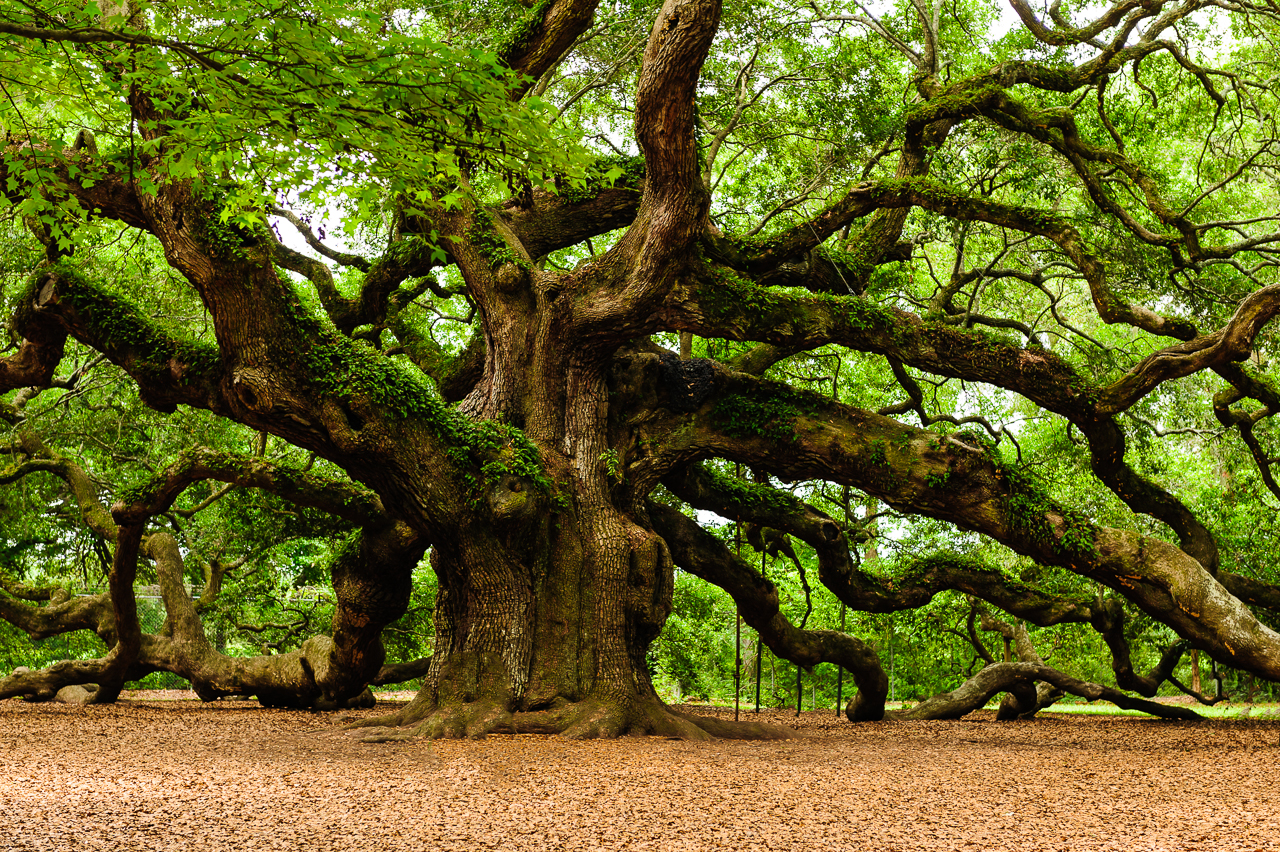
Angel Oak Tree, South Carolina, USA. Photo: naturedeprived.com
‘Perhaps the greatest champion of beauty was William Wordsworth. In the early 19th century he saw his beloved Lake District coming under pressure from the construction of ugly villas; the commercial extraction of ores; the invasion of the alien tree, the “spiky larch”; and the prospect of the railway arriving in Windermere. His cry – “is then no nook of English ground secure from rash assault?” – galvanised a movement of people who loved beauty and were prepared to stand up and defend it.
‘John Ruskin took up the fight, campaigning against the horrors of rampant industrialisation and its social consequences, his efforts leading to the creation of the National Trust and to the first ideas about good planning, with its aims of “the home healthy, the house beautiful, the town pleasant, the city dignified and the suburbs salubrious”.
‘Then, beauty mattered enough to shape policy for the public good. And so after the horror of two world wars, the 1945 government implemented a package of measures designed not only to meet people’s basic human needs but also their spiritual, physical and cultural wellbeing. The designation of National Parks, the protection of our cultural heritage and access to the countryside sat alongside the universal right to education, the NHS and the welfare state.
‘We understood then, as we seem to have forgotten now, that the human spirit is not satisfied by material progress alone. As the 19th-century environmentalist John Muir said: “Everybody needs beauty as well as bread.”
‘Yet today we seem to have become seduced by what the American economist Albert Jay Nock called “economism”: that which “can build a society which is rich, prosperous, powerful, even one which has a reasonably wide diffusion of material wellbeing. But it cannot build one which is lovely, one which has savour and depth, and which exercises the irresistible power of attraction that loveliness wields.”
‘Today when we talk about progress we mean only economic progress, and our measure of that is GDP. GDP charts only income, expenditure and production, and doesn’t even try to count the many things that matter but money can’t buy, the things that make us happy, and the natural resources on which we all depend. So it flatters us into thinking things are going well while we are destroying our long-term future.
‘Over the last century we have lost a vast richness of nature and much of the diversity of our landscape; we have degraded our soils and natural resources. In spite of huge efforts, nature and the beauty of the wider countryside are in a worse state than when the conservation movement set out to protect them. Add to this the looming pressures of climate change and it is clear we need to do things differently.
‘And here beauty can help us. Beauty is not just about aesthetics: it is a way of looking at the world that values the things we can’t put a material price on, as well as the things that we can measure. We seek prosperity, but we need a different kind of progress. We live in an era where fewer of us are driven by religious imperatives, but we are not lacking in spirituality, nor in the capacity to be moved to strive for better things. Beauty can give shape to that yearning.
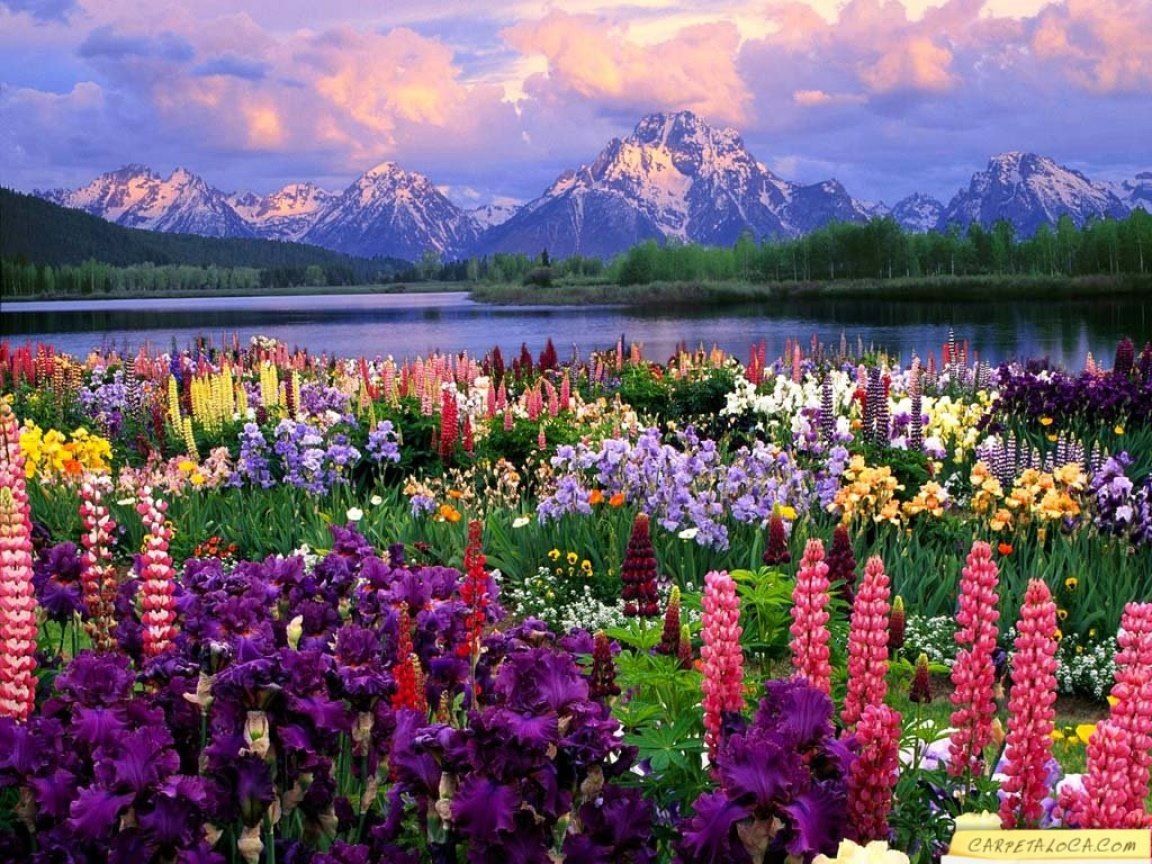
‘Imagine how the world would look if we revived the fight for beauty. We would care more for the world around us. We’d build our cities, towns and infrastructure beautifully – imagine the debate about HS2 if we had set out to make it the most beautiful new railway in the world. We’d protect nature and the countryside, while still producing enough food. We’d care for our cultural inheritance and focus on improving our quality of life rather than striving for unsustainable levels of growth.
‘John Muir, as so often, had the words for it: the fight for beauty is “not blind opposition to progress, but opposition to blind progress”. It’s a fight to which we all need to belong.’- Read the original article HERE
A Must-read Book
The Fight for Beauty: Our Path to a Better Future
By Fiona Reynolds

Photo credit:YouTube
"We live in a world where the drive for economic growth is crowding out everything that can’t be given a monetary value. We’re stuck on a treadmill where only the material things in life gain traction and it’s getting harder to find space for the things that really matter but money can’t buy, including our future.
‘Fiona Reynolds proposes a solution that is at once radical and simple – to inspire us through the beauty of the world around us. Delving into our past, examining landscapes, nature, farming and urbanisation, she shows how ideas about beauty have arisen and evolved, been shaped by public policy, been knocked back and inched forward until they arrived lost in the economically-driven spirit of today. A passionate, polemical call to arms, The Fight for Beauty presents an alternative path forward: one that, if adopted, could take us all to a better future.’-Read more and buy the book HERE

Photo credit: Tarn Reflection, Mt Taranaki/Egmont, Egmont National Park, NZ.-Dave Young, Creative Commons
A Happier and a more Fulfilling and Rewarding Life is Possible when we discover Beauty
Journey to Healing: Let Me Know What is Essential
GCGI is our journey of hope and the sweet fruit of a labour of love. It is free to access, and it is ad-free too. We spend hundreds of hours, volunteering our labour and time, spreading the word about what is good and what matters most. If you think that's a worthy mission, as we do—one with powerful leverage to make the world a better place—then, please consider offering your moral and spiritual support by joining our circle of friends, spreading the word about the GCGI and forwarding the website to all those who may be interested.

Photo: Via DeepDreamGenerator
